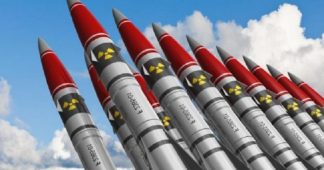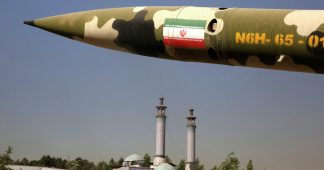By Farhad Rezaei
July 23, 2020
Since late June, there have been dozens of fires and explosions at or near nuclear, military, and industrial facilities in Iran. Experts see the clear possibility of Israeli sabotage in many of these incidents and describe an attempt to disrupt Iran’s re-emerging nuclear program, but Iranian officials have refrained from pointing the finger. Is it plausible for Israel to be behind these serial explosions? And, if it is, why are the Iranians not responding? To answer these questions with any degree of accuracy, an examination of the timing and the locations of these explosions is crucial.
Khojir missile facility. The first episode took place on June 25, when a massive explosion struck an underground tunnel system of the Shahid Bakeri Industrial Group at the Khojir Missile Facility, located in eastern Tehran. As far back as 2010, an Iran expert at the Center for Strategic and International Studies had identified Khojir as a “site of numerous tunnels, some suspected of use for arms assembly,” although some of its other functions remain unknown. The facility is also close to the Parchin military complex, a more familiar name because of the reports of the International Atomic Energy Agency (IAEA), and a place that has been on the minds of US and Israeli intelligence services for over 20 years because they believe Iran conducted illicit nuclear activities there in the past, including tests of explosive triggers that could be used in atomic bombs.
Similarly, the missile program of Iran has long been a target of Mossad, Israel’s national intelligence agency. In November 2011, a massive explosion at the Bid Kaneh missile development site completely destroyed several buildings and killed General Hassan Tehrani Moghaddam, the father of Iran’s ballistic missile program, along with 38 others. The incident was widely viewed as an act of sabotage by Israel as a way to degrade the impressive strides in Iran’s missile program.
Furthermore, the missile industry of Iran’s Revolutionary Guards has been on the Mossad hit list as a result of its role in providing Hezbollah with advanced GPS components and precision-guided missiles capable of hitting anywhere in Israel. Countering Iran’s missile threat was a priority in Israel’s intelligence assessment for 2019, and Israeli Prime Minister Benjamin Netanyahu promised to take actions against it in Lebanon, Syria, Iraq, or even inside Iran itself. So it is plausible that Israel had a clear motivation to deal with this alleged source of threat.
But beyond that, evidence of Israeli sabotage is thin. Immediately following the incident, a spokesperson for Iran’s defense ministry said the explosion was inadvertent and involved industrial gas tanks. Although the explanations by Iranian officials did not quite add up, the possibility of an accident cannot be ruled out.
Sina Athar Health Center. On June 30, a few days after the missile facility incident, a blast at the Sina Athar Health Center caused significant damage to the building and surrounding area and killed 19 people. According to the Iranian government, this incident, too, was inadvertent, caused by a leak from medical gas tanks in the building.
Unlike at the missile facility, where Israel may have a motivation to carry out an act of sabotage, a medical clinic would not seem to be a target. However, if one were looking for an explanation, one possible—albeit remote—scenario is that the Iranians might have been hiding sensitive material related to their nuclear program in the clinic. After all, the Iranians are skillful in using a public facade for an illicit nuclear program. An enormous archive of documents stolen from Iran by Mossad agents in 2018 uncovered a facility where, according to Prime Minister Netanyahu, the Iranians concealed “massive amounts of equipment and material” related to a nuclear weapons program. When the IAEA tried to investigate, Iran claimed it had been a carpet cleaning factory. This tactic of hiding illicit activities in plain sight has successfully been used by the regime in the past, and it is plausible that the regime may use this tactic again.
Read more at https://thebulletin.org/2020/07/experts-blame-israel-for-the-recent-explosions-why-wont-iran/
Also read











